Biometrics
Biometrics refers to the use of analytical tools and devices which capture, record and/or process people’s physical or behavioural data. This can include faces (commonly known as facial recognition), fingerprints, DNA, irises, walking style (gait), voice as well as other characteristics. Under the EU’s data protection laws, this biometric data is especially sensitive. It is linked to our individual identities, and can also reveal protected and intimate information about who we are, where we go, our health status and more. When used to indiscriminately target people in public spaces, to predict behaviours and emotions, or in situations of imbalances of power, biometric surveillance such as facial recognition has been shown to violate a wide range of fundamental rights.
Filter resources
-

EU’s AI proposal must go further to prevent surveillance and discrimination
The European Commission has just launched the EU draft regulation on artificial intelligence (AI). AI systems are being increasingly used in all areas of life – to monitor us at protests, to identify us for access to health and public services, to make predictions about our behaviour or how much ‘risk’ we pose. Without clear safeguards, these systems could further the power imbalance between those who develop and use AI and those who are subject to them.
Read more
-
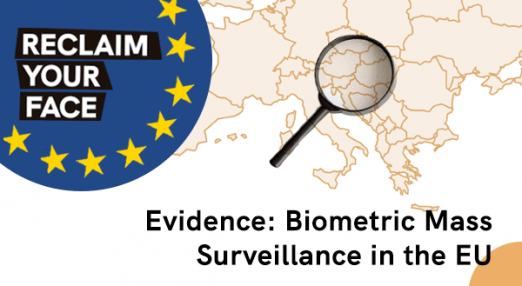
Evidence shows a European future that is dystopian: #ReclaimYourFace now to protect your city
The latest evidence shows that biometric mass surveillance is rapidly being developed and deployed in Europe without a proper legal basis or respect for our agency as self-determined and autonomous individuals. No one is safe, as our most sensitive data like our faces, eyes, skin, palm veins, and fingerprints are being tracked, traced and analysed on social media, in the park, on the bus, or at work.
Read more
-
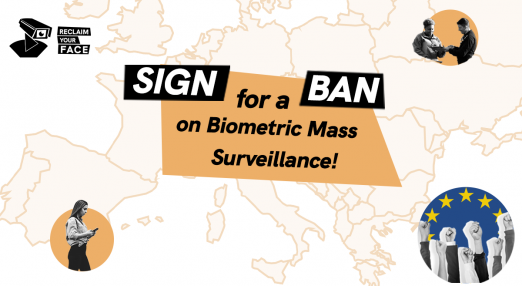
European Commission must ban biometric mass surveillance practices, say 56 civil society groups
On 1 April, a coalition of 56 human rights, digital rights and social justice organisations sent a letter to European Commissioner for Justice, Didier Reynders, ahead of the long-awaited proposal for new EU laws on artificial intelligence. The coalition is calling on the Commissioner to prohibit uses of biometrics that enable mass surveillance or other dangerous and harmful uses of AI.
Read more
-
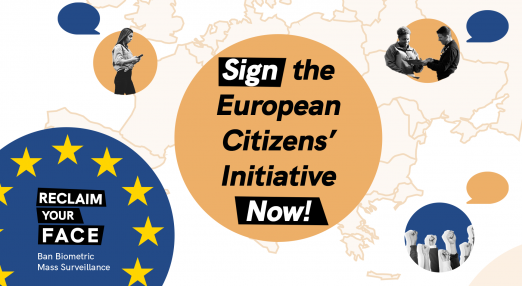
No faces left to hack: #ReclaimYourFace Now!
We cannot let power-hungry and profit-orientated technologies manipulate our future, take away our dignity and treat us like walking, breathing barcodes. We have the right to exercise our autonomy and self-determination free from abusive practices undermining our agency. The Reclaim Your Face’s ECI empowers Europeans to move and shape the public debate on the use of these AI-powered biometric technologies. The EU has the chance to show that people sit at the center of its values, by taking the lead to ban biometric mass surveillance that endangers our freedoms, democracies and futures.
Read more
-

The EU should regulate AI on the basis of rights, not risks
EDRi's member Access Now explains why the upcoming legislative proposal on AI should be a rights-based law, like the GDPR. The European Commission must not compromise our rights by substituting a mere risk mitigation exercise by the very actors with a vested interest in rolling out this technology.
Read more
-
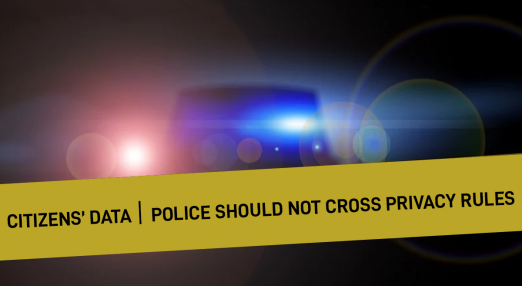
EDRi challenges expansion of police surveillance via Prüm
The Prüm framework permits police forces of EU Member States to exchange DNA files, fingerprints, vehicle data via a decentralised system. The European Commission and the Council are pushing for a “Next Generation Prüm” in which facial images, firearms data, driving licenses, extracts of police records, data about third-country nationals and many additional types of data could be shared via the system.
Read more
-
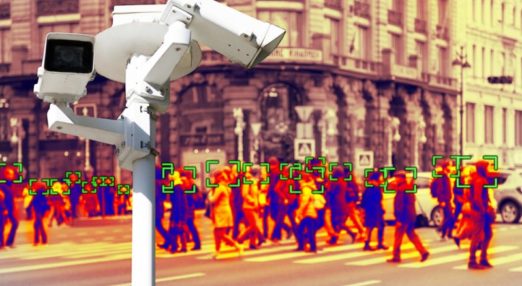
This is the EU’s chance to stop racism in artificial intelligence
Human rights mustn’t come second in the race to innovate, they should rather define innovations that better humanity. The European Commission's upcoming proposal may be the last opportunity to prevent harmful uses of AI-powered technologies, many of which are already marginalising Europe's racialised communities.
Read more
-
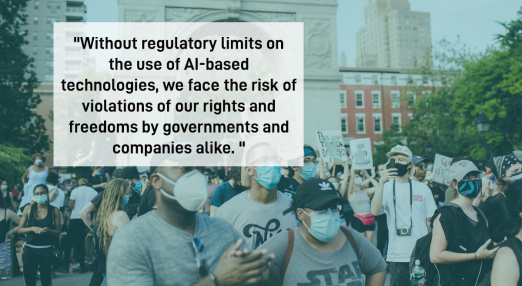
116 MEPs agree – we need AI red lines to put people over profit
In light of the upcoming proposal for the regulation of artificial intelligence in Europe, 116 Members of the European Parliament (MEPs) have written to the European Commission’s leaders in support of EDRi’s letter calling for red lines on uses of AI that compromise fundamental rights.
Read more
-

Eurodac database repurposed to surveil migrants
Eurodac is the EU database used to store asylum seekers’ and refugees’ data, as well as certain categories of “irregular” migrants. By the end of 2019, the EU stored almost 6 million peoples’ fingerprint sets in the database. Research show how legislative developments transform the Eurodac database into “a powerful tool for mass surveillance”, endangering migrants' fundamental human rights.
Read more
-
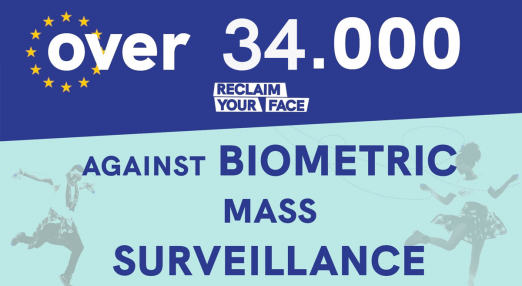
#ReclaimYourFace and help prevent the end of privacy as we know it!
Facial recognition and other biometric surveillance threatens the core of our right to privacy and data protection by surveilling and judging us. This is why across Europe, we’re calling to ban biometric mass surveillance practices. We’re counting on EU citizens to sign our ECI petition, and on everyone to spread the word and make sure that European governments cannot ignore our demand.
Read more
-

“Anytime and anywhere”: Vaccination, immunity certificates, and the permanent pandemic
The deployment of vaccines, and in particular any “immunity passport” or certificate linked to the vaccination, must respect human rights. EDRi's member Privacy International (PI) reveals some of the broader human rights, ethical and societal implications of vaccination "passports".
Read more
-

ECI: putting people’s voices before corporate greed
On 17 February 2021, EDRi with a coalition of 40 human rights and social justice groups launched a unique, officially-recognised EU petition, called a “European Citizens’ Initiative” (ECI). Here, we explain why and how this ECI is a powerful tool for our Reclaim Your Face campaign that aims to ban biometric mass surveillance, as well as for our wider European advocacy against harmful uses of artificial intelligence-based technologies.
Read more
